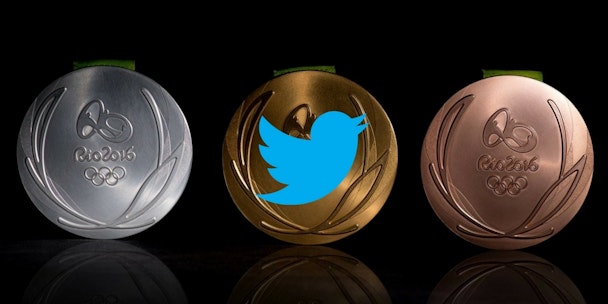On your marks, get set, go social - how to clear Rio's Olympic-sized regulation hurdles
The biggest sporting event of the year starts today and the social teams of major brands are doing their stretches and taking off their branded track suits ready to follow the Games in real-time to scoop Gold for 'first brand to create a viral piece of content'.

Rio 2016
Notice though how I didn’t mention the actual name, that’s because referring to the Rio 2016 Olympic Games as the “biggest sporting event” of the year might be the only option open for brands that are not official sponsors.
Only worldwide Olympic partners including Coca-Cola, McDonald’s, GE, Panasonic, Samsung and Visa among others, and at a local level in Brazil, Bradesco, Claro and Nissan, are authorised to use the Rio 2016 branding.
I’ve read the Rio 2016 Brand Protection Guidelines for Advertising and Marketing, and firstly it’s important to note that media outlets are excluded from these rules, they only apply to brands – and there are a lot of these rules to take on board.
So please find below the main things to take into consideration if you are planning to create content around the Games for your brand:
Logos and imagery: The intellectual property of the Games includes the official logos (like the Olympic Rings, and the specific logos of the Rio 2016 Olympic and Paralympic Games brands), symbols (like the Olympic Flame) and expressions (like the Olympic motto “Altius, Citius, Fortius’ – Latin for ‘higher, faster, stronger’), so brands should avoid mentioning or including this highly-protected assets.
Also, brands will not be able to share any Olympic results, official pictures, and re-posts or shares from any official Olympics group.
Expressions: In addition to the protected logos and symbols, the International Olympic Committee (IOC) has registered some expressions and designations, such as: ‘Olympic Games’, ‘Paralympic Games’, ‘Rio 2016 Olympic and Paralympic Games’, ‘Rio 2016 Games’, ‘Rio 2016’, ‘Rio Olympiad’, ‘Rio 2016 Olympiad’, ‘XXXI Olympic Games', among others, as well as their variations and translations.
This means that if your brand is not a sponsor, it can’t use any of these terms in their communications, including the hashtag version of all of those terms.
Athletes: Rule 40 establishes “No competitor, coach, trainer or official who participates in the Olympic Games may allow his person, name, picture or sports performances to be used for advertising purposes during the Olympic Games.”
Imagine all of that being spoken rapidly on a radio ad.
When a brand sponsors an athlete, it’s very common to add in the legal agreement a clause about social media activity, which generally includes that the brand will mention the athlete in their social channels, and vice versa. However, this will not be possible during the Olympics (for example, an athlete will not be able to post a thank-you message in social media mentioning their sponsor), and brands will not be able to post any pictures or results on their social media page or website of their athlete on the Games. This really diminishes the way brands can leverage the digital presence of the athlete they are sponsoring.
On this note, the United States Olympic Committee has already sent letters to the brands that are sponsoring athletes that compete in the Games, but are not sponsors of the Games. This letter, obtained by ESPN, reads “Commercial entities may not post about the Trials or Games on their corporate social media accounts. This restriction includes the use of USOC's trademarks in hashtags such as #Rio2016 or #TeamUSA."
So what opportunities are left? Well, there are still plenty of you do it right. The Olympics will be a highly-saturated time for advertising, so in order to create content that really cuts through, brands will have to look for situations to comment on that are appropriate to their brand’s values and tone of voice. Real-time marketing is all about popular culture, so to be part of the conversation, brands will have to monitor online conversation to identify social behaviours and trends, popular views and comments, and try to tackle that with branded, relevant content.
During the 2014 Brazil World Cup, brands scored hits on social media by just commenting or reacting to shocking events. If there are particular situations that are taking social media by a storm (for example, when Luis Suarez bit Giorgio Chiellini at the Uruguay vs Italy game), it will not be necessary for a brand to any hashtag or context to their content, as everyone will be aware of what this is about. But note that the actual time window to do this might be short, so it’s critical for a brand to have a very reactive and quick team to craft the right message.
It’s also important to have a close look at the calendar events, and try to predict which ones are going to create more viral buzz around them, in order to create pieces of content in advance.
For example, Usain Bolt will aim to win an unprecedented triple treble of gold medals this year (having won the 100m, 200m and 4x100m relay at the past two Olympics, he would be the first athlete to win the three titles at three consecutive Games). And if this happens, it will definitely be the most-talked about event of the day, and brands will be able to tap into this particular conversation without the need for any hashtag or picture.
Florence Lujani is head of social at J. Walter Thompson London
